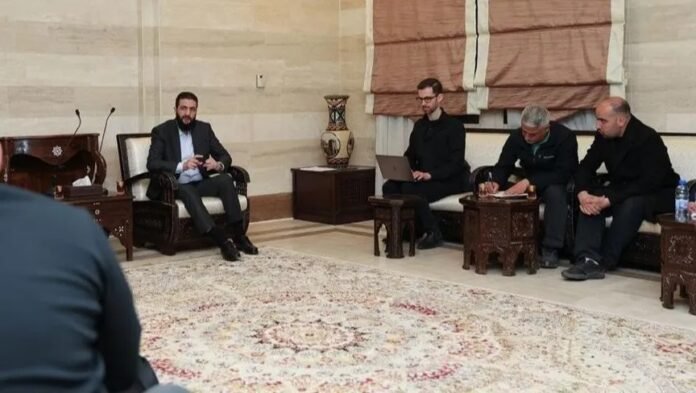In an interview with Ahmed Al-Sharaa, known as Abu Mohammed Al-Joulani, the head of military operations in Syria and a prominent figure in the Syrian opposition, intriguing insights into Syria’s future after Bashar Al-Assad’s regime emerged.
Al-Joulani stated that discussing the political system at this stage is premature, noting that specialized committees are working on drafting a new constitution and defining the final form of governance. However, these remarks raise many questions about Syria’s future and how to rebuild the state after a prolonged conflict.
The Next Stage in Syria: Priorities and Challenges
Al-Joulani outlined his priorities for the post-Assad phase, emphasizing the importance of rebuilding a devastated Syria and providing basic needs such as energy, fuel, and communications. These priorities, however, raise pressing questions:
- Can such reforms be achieved amid immense economic and political challenges?
- How can a long and complex transitional period be managed, especially given deep societal divisions?
Demobilizing the Army: A Step Towards Military Reorganization?
Regarding the Syrian army, Al-Joulani announced the dismissal of conscripts from the former army, relying instead on Idlib forces (Hayat Tahrir Al-Sham) and new volunteers. This step raises several concerns:
- Can these forces ensure stability and security in a complex regional and international environment?
- Is it feasible to rebuild a new army based on voluntary recruitment while restoring national trust?
Naturalizing Foreign Fighters: A Path to Reconciliation or a Risk?
Al-Joulani hinted at the possibility of granting Syrian citizenship to foreign fighters who participated in the revolution. While he sees this as a reward for their support, the proposal is contentious:
- How can these fighters be integrated into Syrian society without causing internal tensions?
- Will Syrian citizens accept this decision, or will it deepen societal divisions?
The Challenges of Reconstruction
Al-Joulani highlighted the scale of destruction caused by the Assad regime, describing Syria as “destroyed.” Yet:
- Can a ruined state be rebuilt in the short term?
- Will international support be sufficient to overcome decades of corruption and authoritarianism?
Transitional Justice: How Feasible Is It?
Although transitional justice is emphasized, Al-Joulani insisted on holding those responsible for violations, including torture and executions, accountable. However:
- Can justice be achieved without political and security stability?
- How can national accountability be balanced with community reconciliation?
The Gap Between Rhetoric and Reality
Despite Al-Joulani’s optimism about building a new Syria, the reality on the ground remains fraught with challenges:
- Can groups like Hayat Tahrir Al-Sham effectively govern the country?
- Will the international community recognize this new political authority?
The answers to these questions will shape Syria’s future and its ability to build a new state after decades under Assad’s rule.


